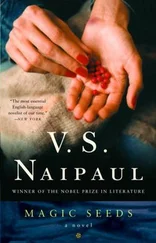“I'll do more than that,” said Marsh. He headed for the meeting room door, rolling up his sleeves.
“No! You'll do nothing.” Stephenson blocked his way, shoving him back with a firm hand to the chest. “Beauclerk was right. You've gone round the bend.”
He shook his head. “You're done.”
“Not until I know why she—”
“You've done your service to the country.” Stephenson's tone was firm, if a little sad. His hand felt heavy against Marsh's heartbeat. “But you've lost your objectivity. You're no longer fit for this work.” He shook his head. “You're out. Go home.”
Long seconds ticked away while they stared each other down. Marsh swallowed down the rage, tamped down the urge to lash out. It left him feeling, for all the world, like a little boy caught stealing from a winter garden. He knocked Stephenson's arm away.
Stephenson returned to the meeting room. The door latched shut behind him, followed by the snick of a lock sliding into place.
Marsh went home. He didn't look back.

That summer, the ravens of Albion returned to the Tower of London.
Changing seasons brought longer days. Peaceful days. No more fire, no more rubble, no more shallow graves. The men and women of the island emerged from their shelters and rejoiced. The war was over. They had persevered.
They rebuilt. Day by day, a brick at a time, they rebuilt their country and plastered over the scars of war. And the ravens, knowing the cycle of all things, returned to their old perches. Those still standing.
At night, the cities and towns and villages and hamlets blazed with light. The nighttime world had become a wine-dark sea to the ravens, with nothing but darkness below and the stars and moon above. But no longer. Light and joy returned to the world.
And the ravens, knowing the cycle of all things, returned to their old ways. They waited, and watched.
This is what they saw:
3 September 1941
Bestwood-on-Trent, Nottinghamshire, England
You're looking dreadfully chipper for this time of morning,” Aubrey T said from the doorway of the breakfast room. The window behind him framed a trimmed hedge and a flock of blackbirds.
Will looked up from his breakfast. “Today is an important day.” He shivered. “Exciting, isn't it?”
Aubrey arched an eyebrow. He seated himself at the head of the long table. He lifted Will's teacup, which was half-empty, and sniffed the contents. Sunlight poured through the stained-glass rosette window, shattering into little rainbows that danced around the room when Aubrey also inspected the teapot.
It was the same ritual he'd performed every morning for the past two months. And every morning Will felt the shame a little less acutely than the day before.
“I trust you find everything satisfactory?” he asked.
Aubrey harrumphed. He opened the newspaper tucked neatly at his seat. The two brothers sat quietly, Will eating and Aubrey reading, while blackbirds screeched to each other in a shrubbery beneath the window.
As a rule, Will avoided reading the papers. Too frequently they dampened the nation's celebratory mood by mentioning the hundreds of Britons killed by pro-German saboteurs during the war, or calling for renewed efforts to find and punish the fifth columnists who had derailed trains, sunken ships, burned hospitals. The rhetoric was dying down, but it would forever be a sore spot on the British psyche.
The warlocks had returned to their secret, quiet little lives. They had gone into hiding.
Will called for Mr. Pantaiges, the current steward of Bestwood. Aubrey listened while Will described his plans for the day to Mr. Pantaiges.
Two hours later, Will stood panting in the glade where a natural spring gurgled up through cleft granite. He'd discarded his vest and rolled his sleeves up to the elbow. His shirt was ruined, torn by the thorny brush through which he'd hacked a path wide enough for a wheelbarrow.
The exertion felt wonderful, like life was pumping through his body again. He relished the feel of sweat on his skin, the heave of his chest as he caught his breath, the rapid beating of his heart. Even the deep scratches on his hands and arms. Will imagined the sweat and blood wicking away any lingering traces of the poison in his body. Almost three months had passed since the phantom hunger had withered and died.
Will listened to the whooshing updraft from the bonfire. The blackbirds had fallen silent; they watched from the distant crenellations of Bestwood. His grandfather's personal effects released an exhilarating heat as flames consumed the pile. The fire wouldn't destroy everything, but Will would bury the ashes and anything left intact. The glade smelled of cleansing fire.
Mr. Pantaiges came crashing through the thicket, his wheelbarrow bouncing along the path of trimmings Will had left strewn through the surrounding copse. He set it down, close enough to the fire that Will could dump the contents into the fire: a walking stick, framed black-and-white photographs, and clothing.
“The last of it, sir.”
Will shook his head. “I want you to gather everything. Nothing is to be spared.”
“I understand, sir. With apologies, I am quite certain these are the very last of His Grace's belongings, may he rest in peace. I've confirmed it personally, sir.”
Will sifted through the contents of the wheelbarrow. “His papers, too, Mr. Pantaiges.” Especially his papers.
“Ah,” said the majordomo. A moment of awkward hesitation passed before he continued. “I am afraid, sir, that the Admiralty men left nothing behind.”
The fire lost its warmth. Will shivered under a frisson of cold. He steadied himself on a granite outcropping and eased himself into a sitting position.
“What men, Mr. Pantaiges?” His voice was barely a whisper above the crackle of the bonfire and the faint booming of a distant surf.
“The men from the Admiralty, sir. They requisitioned all of the late Duke's papers. For the war effort, they said. And His Grace, being very keen to do his part for the country, as I'm sure you know well, sir, was quite emphatic that we should pack up every last scrap of paper for them.”
“I see.” Will fought to catch his breath. “And when did this happen?”
“Many months ago, sir. This past winter.”
“Do you remember anything else about these men? Their appearances, or how they might have spoken?”
“No, sir. They seemed rather ordinary, if I may say so.” The majordomo paused. “There was one thing, sir. Struck me as a trifle odd at the time.”
“Tell me.”
“I remember they were very specific. They asked several times if His Grace had kept any notes on child rearing. Can you imagine that, sir?”
An old memory floated unbidden into Will's mind, like a piece of flotsam carried on a rising tide. They'd been driving through the city, Pip at the wheel. Pip had asked about the lexicons, and Enochian, and how it all began. Will had tried to dodge the subject: I had this very same conversation yesterday. Can't you have the old man explain it to you? Will had tasted his first pint that afternoon.
And he remembered another, more recent conversation with Marsh. Have you heard anything about some work going on downstairs? At the Admiralty.
He stood. “That will be all, Mr. Pantaiges. Please tell my brother I've gone to London for the day.”
The renovations had been so thorough that Will hardly recognized the space. The basement beneath Milkweed HQ had been rebuilt. Gone were the mildewed storerooms, the brick arches, the warren of corridors. They had been replaced with what appeared to be rows of bank vaults.
Читать дальше










